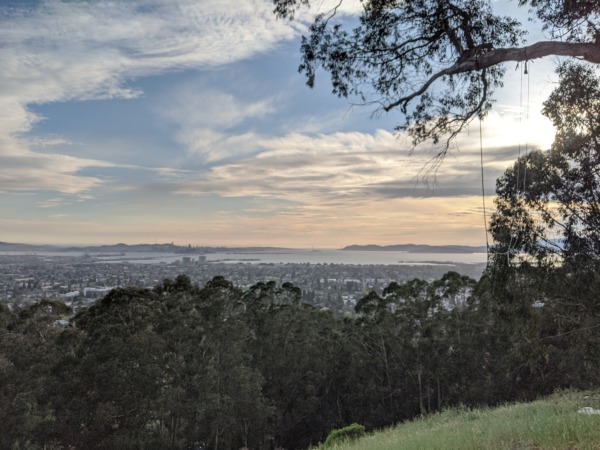I’ve voted in every election I’ve gotten a ballot for, since I turned 18. I’d like to think that during each election, my decisions have been grounded in evidence and sufficient research, while staying true to my values.
But, despite making fairly consistent ballot choices over the past decade, I’ve realized that I’ve never actually recorded that research, or those values. This post is an attempt to
- prioritize and summarize what I currently stand for, and
- serve as landing page for more in-depth “position papers”.
The Issues
If I were to take Pew Research’s “important issues in the 2020 election” survey, I would probably say that all 11 issues they identify are “important” or “very important” to me. However, if I had to prioritize them, this is probably what that ranking would look like right now:
The Top Three
Issues that I feel most strongly about, and dedicate time and money to.
- Climate change. Ten years ago, this would’ve been lower on this list. It should’ve been higher. Now, we’re past the point of no return (where damage to our natural world is irreversible). Natural disasters are more frequent and more damaging. Global biodiversity has tanked. Every year, humans damage the Earth ever faster than it can heal itself. Still, measures to mitigate the consequences of climate change, and environmental damage are essential.
- Economic inequality. Economic inequality is in the US is at a record worst. Worse, the cost of living has far outpaced the vast range of salaries. Everyone should only need to work one, full-time job to afford housing, food, education and healthcare.
- Economy. “The economy” is an issue that often tops the chart on what most people care about the most. Investopedia defines it as “the large set of inter-related production and consumption activities that aid in determining how scarce resources are allocated.” For me, main production-side issues that come to mind include (1) sustainable development, (2) strong worker protections, and (3) strong R&D investment. Main consumption-side issues include (1) strong consumer protections and (2) sensible monetary/fiscal policy (e.g. to control inflation/deflation, direct monetary stimuli, etc.).
In a way, “economic inequality” and “economy” are tightly coupled, with the former being more “micro” and the latter being more “macro”-oriented in terms of scope and policy.
Top of Mind
The issues that I frequently think about (now).
- Supreme Court appointments. Before Kavanaugh and especially before Ruth Bader Ginsburg’s death, this would’ve been lower on my list. In particular, my concerns around this country’s legal system revolved more around (1) weakened consumer protection under the Trump administration, (2) arbitration clauses, (3) court packing, (4) cash bail, and (5) the disenfranchisement during and after prison time.
But clearly, the picture has changed. Back in 2016, the GOP insisted that the Supreme Court should NOT be touched during an election year. Now, in 2020, they’ve clearly changed their minds. Though this issue won’t directly affect my vote during this election, it’s now top of mind. - The coronavirus outbreak. Controlling a national disaster with a national game plan is EXACTLY what the federal government is meant to do. However, the current administration and its supporters have (1) sowed distrust in the medical and scientific community (e.g. even overriding the CDC); (2) sown confusion about what’s effective (i.e. masks) and what’s not (i.e. hydroxychloroquine); and (3) forced states to compete against each other for PPE.
While I think this is a major issue that has (and will continue to) change the fabric of life as we know it, and was a major priority for me earlier this year, this is now lower down in my priorities. By now, policies, behaviors and perceptions are entrenched, from the federal, state, county, and individual levels. We’re all voting with our masks now. - Healthcare. Healthcare is a human right. Of all developed nations, the US is the only country without universal healthcare, either via a government-funded system or a public and/or private insurance system. The ACA was a step in the right direction, albeit watered down by compromises, but faces constant attack.
That said, this is farther down my list. For better or for worse, healthcare, as a political topic and as a professional field, moves very slowly. It rarely appears on the ballot, and when it does, it’s often targeted toward very specific issues or subgroups that I’m often not particularly opinionated about, at least right now (e.g. Prop 23 this year, regarding kidney dialysis clinics).
Important
Issues that don’t come to mind often and/or are addressed in overlapping issues above.
- Race and ethnic inequality. There are so many dimensions to this. There’s an economic inequality one. There’s an institutional segregation one (e.g. by social network, employment biases, access to quality education, etc.). There’s a policing one. There’s a lot to unpack. I’ll probably have more to say here in the future. Suffice it to say that this is really only here because I think economic inequality and ethnic inequality are tightly intertwined, and progress on one will result in progress in the other.
- Abortion. This is an issue of freedom. Women should be free to make reproductive choices regarding their own body, without harming a viable “person”. The keyword “viable” is controversial. For me, I align with the concept of viability, e.g. “the point in a pregnancy at which, in the reasonable opinion of a medical practitioner, the fetus is capable of survival outside the uterus without extraordinary life-sustaining measures.”
With all of that said, this rarely ever comes up in political analyses I read or ballots I consider. So I probably don’t think about this (with “this” being women’s reproductive rights, and perhaps women’s rights and gender equality more broadly) as much as I should. - Violent crime. Interestingly, while I literally spend time in Oakland, one of the most dangerous cities in the country, nearly every day, I don’t feel particularly unsafe, even when I’m running late into the night. Even when there’re protests everywhere, I don’t feel unsafe. I guess I avoid the “bad” areas?
The only times I’ve felt uneasy have actually been incidents where outside white supremacist groups have come in to make a scene.
Perhaps, out of all the issues here, this one caters the most to personal experience. Yes, I’ve been jumped twice on the street at night, and saw a knife pulled while riding the BART. But each time, I never felt that the situation got out of control, or I was able to leave the scene without injury (and without feeling too worried). So because I haven’t really experienced anything particularly bad, “violent crime” isn’t particularly important as an issue to me.
I might feel differently if I had a kid though. - Gun policy. I’ll have to get back to this one in a future writeup. In short: (1) federal requirements for getting guns and ammo need to be stricter; (2) people with a documented history of mental illness, domestic abuse, and violent crime should be prohibited from possessing guns and ammo; (3) assault rifles and modifications to firearms to make them automatic should be banned; and (4) online gun sales should be banned, i.e. they need to be sold in person.
I do think that there’s value in owning and being educated in firearm usage and safety. I just think that the rate of firearm-related injury and death in the US is outrageously high, and many of firearm-related injuries and deaths are sadly preventable due to irresponsible sale and ownership. - Foreign policy. “Foreign policy” is a very broad category of issues, though one that’s tightly bound to economic issues from tariffs to supply chain stability, social issues from immigration (both the undocumented kind and the H1B/OPT kind) to upholding human rights abroad, and end-of-the-world issues like climate change.
I’ll also have to get back to this one in future deep dives.
And that’s it: issues, the way I see it today, in the waning weeks of 2020.
The next post: where I stand on each of California’s propositions this election cycle. That’s going to be fun…

